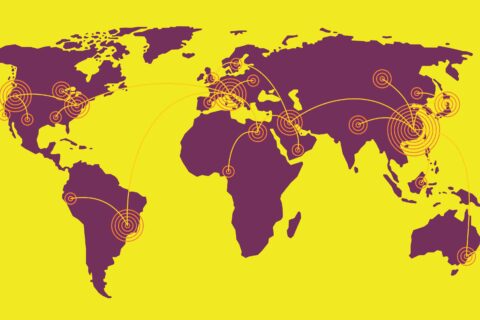The COVID-19 pandemic has changed how we live. It has affected every industry, company, and person in only a few weeks. While the virus itself disproportionately affects older people, the economic effects are devastating for young people.
Amongst many my age there’s anxiety about job security. The UK Government measures, paying 80% of an employee’s wages if they’re furloughed, were welcome. However, this came too late to save the jobs of some I know in industries such as Television Production and Events Management.
Worries ahead
I don’t envy students graduating this summer, who will now have to compete with not only each other, but also those who have already lost their jobs, in a narrowing jobs market. An FT analysis after the 2008 financial crisis found that 5 years after the crisis, recent graduates earned 12% less, while the number employed in lower skilled jobs had increased significantly.
Worryingly, a recent study by the Bright Network found that 63% of graduating students have already had job offers withdrawn or paused due to COVID-19.
If companies are struggling to retain their existing staff, new talent is likely to be overlooked. Government intervention is needed to ensure we don’t have a ‘lost generation’.
One thing that I’ll certainly miss as a young researcher is attending events and conferences. I first got my exposure to the market research industry as a YES Press representative at ESOMAR’s Data and Insights Summit last year, and I have found events to be useful for learning and meeting people in the industry.
However, as someone relatively new to the market research Industry, I’ve been struck by its remarkable resilience and level-headedness. Confidence has risen again as people adapt to new ways of living, and it’s clear that market research is important in helping companies understand new consumer behaviours.
Adapting to new challenges
My employer, Tapestry Research, quickly helped everyone adapt to home working. Every morning at 10am we have a video team catch up—silly backgrounds mandatory—to check in and plan out everything needed for the day, somewhat replacing our usual office morning chitchat. Our monthly manager catch ups are now weekly, and we’ve even reinvented our Friday night pub sessions – with virtual activities including musical bingo, trivia and my personal favourite, ‘guess whose fridge is whose’.
These all go some way to tackling what could otherwise be a very isolating experience.
In this situation, communication is key across a company. From major issues such as new business and contingency planning, to just friendly chat, checking everyone is ok, and finding out what happened with them over the weekend, if you’re not in the office this can all be lost. That’s why video calls, email and messaging apps have come into their own.
The job of market researchers is even more important, and the huge change of people’s circumstances means this is also a big opportunity to experiment in behaviour change.
A chance for observation
I have recently worked on a project with Tapestry, looking at how different people have reacted to the crisis. We’ve identified four distinct segments of people, defined by their similarities and differences since Covid-19 took over our lives. Specifically we looked at how:
- Worried they are
- Much their behaviour has changed
- Confident they are in the future
These findings will help companies develop and communicate their offering and cater for the differences.
There will inevitably be changes to how the market industry works. Face to face research may become a thing of the past, but there are opportunities for innovative digital methodologies to take hold. Young researchers can drive that innovation.
Some clients will be affected more than others. Industries relying on consumer footfall or travel will undoubtedly be the worst affected. Conversely, those based on home use technology may benefit. What isn’t in question is that market research can help to understand going forward what consumer priorities are, and how to communicate with their customers in the future.
Most people are wondering what the world will look like when all this is over. Will there be great societal shifts, seen after similar global events such as Spanish flu, the World Wars, and the Great Depression? Market Research will be at the forefront of finding out, and young researchers will, now more than ever, have a part to play in wider conversations.


